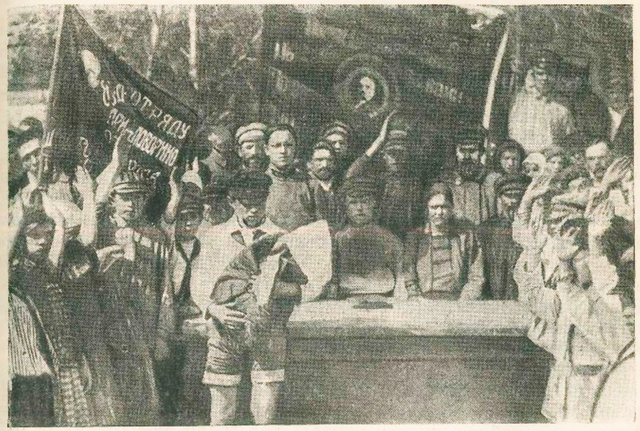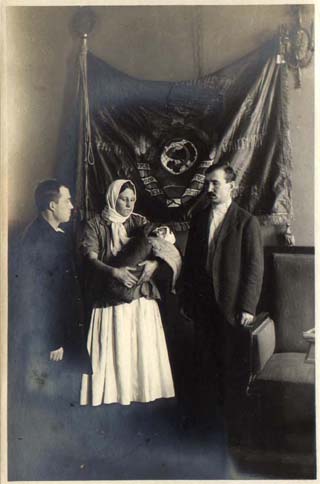Top Qs
Timeline
Chat
Perspective
Octobering
Child naming ceremony in the early Soviet Union From Wikipedia, the free encyclopedia
Remove ads
Octobering was a naming ceremony which occurred during the early era of the Soviet Union, which involved giving a name to a newborn, introduced by the state on the official basis of Marxist–Leninist atheism as an attempt to replace the religious tradition of christening.[1][2] The term serves as a translation of two synonymous Soviet neologisms: Oktyabryenie, coined in an analogy to Kreshcheniye, literally, the sacrament of "baptism", and Oktyabriny instead of Krestiny, the latter being a family celebration on the occasion of baptism. [3]

The term Oktyabriny is distinct from Oktyabrina, which is a Soviet given name. All three words are derived from the word Oktyabr, (October), commemorating the October Revolution.
Since the religious symbol of the Christian cross was replaced with the revolutionary symbol of Red Star (Russian: "krasnaya zvezda"), the ceremony was also called zvezdiny, in an analogy with krestiny, the term "to Christen" (Russian: okrestit) was replaced with the term ozvezdit.

Despite being short-lived,[4] this so-called new Soviet rite contributed to the proliferation of the new names based on revolutionary phraseology, such as Oktyabrina, Vladlen (for Vladimir Lenin), etc.[2]
Remove ads
Cultural references
In the 1988 film Heart of a Dog, there is an episode where a mother who brought a newborn baby girl to ozvezdit was given a choice of "revolutionary names" including Barrikada, Bebelina, etc.
References
Wikiwand - on
Seamless Wikipedia browsing. On steroids.
Remove ads
